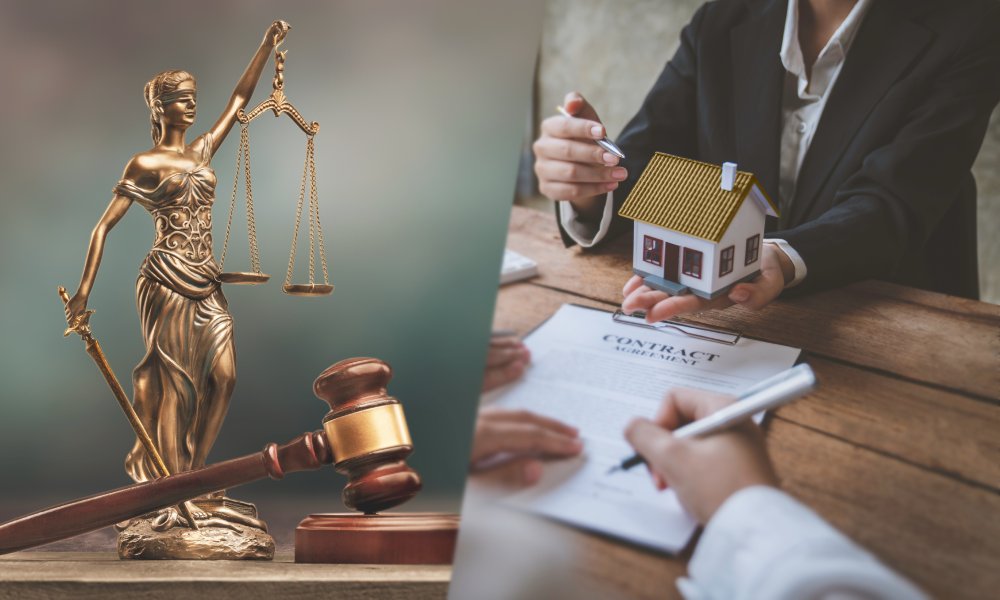Common Conveyancing Delays and How to Avoid Them
Buying your first home? Congratulations! While it’s an exciting milestone, one part that often catches first-time homebuyers off guard is the legal journey called conveyancing. It’s not unusual for the process to experience unexpected delays—but knowing what causes them and how to avoid them can save you time, money, and stress.
This guide breaks down the conveyancing process, highlights common holdups, and offers practical tips to keep your property transfer moving smoothly.
What Is Conveyancing?
Conveyancing is the legal process of transferring ownership of property from a seller to a buyer. It begins when your offer is accepted and ends on settlement day, when you officially receive the keys and your name goes on the title.
The process includes:
- Reviewing contracts
- Conducting property and title searches
- Preparing legal documents
- Arranging the transfer of funds
- Registering ownership with the land registry
This is usually handled by a licensed conveyancer or property solicitor.
Why Conveyancing Matters in Home Buying
Conveyancing does more than just move paperwork around—it protects your rights as a buyer and ensures:
- The seller legally owns the property
- There are no debts, disputes, or title issues
- Contracts are accurate and fair
- The transfer complies with legal requirements
Without proper conveyancing, you could end up with unresolved legal or financial issues tied to the property.
Key Stages of the Conveyancing Process
While every property deal is different, the conveyancing process generally follows these steps:
📝 1. Pre-Contract Review
- Conveyancer examines the contract of sale
- Property searches (title, zoning, council rates) begin
🖊️ 2. Exchange of Contracts
- Buyer and seller sign matching contracts
- A deposit is paid (typically 10%)
- Contract becomes legally binding
⏳ 3. Cooling-Off Period
- A short period (usually 2–5 business days) where the buyer can withdraw (with a small penalty)
🔍 4. Pre-Settlement Stage
- Legal documents and finances are finalised
- Adjustments for rates, taxes, and fees are calculated
- Final property inspection is done
🏡 5. Settlement Day
- Funds and documents are exchanged
- Property transfer is completed
- You receive the keys!
What Documents Are Involved in Conveyancing?
Your conveyancer will handle a range of legal documents, including:
See more: How to Choose the Right Conveyancing Service for Your Property Deal
- Contract of Sale
- Vendor Disclosure Statement (e.g., Section 32 in VIC)
- Certificate of Title
- Transfer of Land Form
- Mortgage Documents (if financing)
- Settlement Statement
Missing or incorrect information in these documents is a common source of delay.
How Long Does Conveyancing Take?
Typically, the conveyancing process takes 4 to 8 weeks. However, delays can easily push this timeline out, especially if issues arise with paperwork, banks, or inspections.
📌 Tip: Ask your conveyancer for a clear timeline and regular updates throughout the process.
Common Conveyancing Delays and How to Avoid Them
Here are the most frequent roadblocks—and what you can do to prevent them:
❌ 1. Delayed Finance Approval
Many buyers underestimate how long banks can take to approve a mortgage.

Avoid it by:
- Getting pre-approval early
- Responding promptly to lender requests
- Keeping your finances organised
❌ 2. Errors or Omissions in the Contract
Incorrect or missing information (e.g., property boundaries, inclusions) can hold up the legal review.
Avoid it by:
- Having your conveyancer review the contract thoroughly before signing
- Confirming all agreed terms are written clearly
❌ 3. Incomplete Section 32 or Vendor Statement
Missing documents or out-of-date council rates can make the contract invalid.
Avoid it by:
- Ensuring the seller provides a full and updated disclosure statement
- Having your conveyancer double-check all attachments
❌ 4. Outstanding Property Debts
Unpaid council rates, water charges, or land tax can delay settlement.
Avoid it by:
- Running property searches early in the process
- Ensuring adjustments are made in the settlement statement
❌ 5. Slow Communication Between Parties
Delays often happen when buyers, sellers, banks, or lawyers don’t respond on time.
Avoid it by:
- Responding quickly to requests from your conveyancer
- Choosing professionals who communicate clearly and promptly
- Staying in regular contact with your lender and agent
❌ 6. Issues Found During Final Inspection
Damage, missing fixtures, or cleanliness problems can cause last-minute disputes.
Avoid it by:
- Scheduling your final inspection 1–2 days before settlement
- Reporting any issues to your conveyancer immediately
❌ 7. Problems with Title or Ownership
Undisclosed easements, caveats, or title defects can delay or cancel a transfer.
Avoid it by:
- Ensuring title and zoning searches are completed early
- Allowing time to resolve issues before settlement
Choosing the Right Conveyancer
A skilled and responsive conveyancer is your best defense against delays. Here’s what to look for:
✅ A Great Conveyancer Will:
- Communicate regularly and clearly
- Spot legal risks early
- Liaise efficiently with banks and agents
- Keep your settlement on track
- Explain everything in plain English
💬 Ask questions like:
“What’s your average settlement time?”
“How do you handle unexpected delays?”
“Do you work with buyers using finance?”
Final Tips for First-Time Homebuyers
- 📆 Start your finance application early
- 📁 Keep all paperwork organised and accessible
- 📞 Stay responsive to emails and calls from your team
- 🧾 Double-check all contract terms and documents
- 🔍 Don’t skip the final inspection
- 👩💼 Choose a conveyancer with strong reviews and first-time buyer experience
Conclusion: Delays Happen, But You Can Stay Ahead
Conveyancing delays can be frustrating—but they’re not always unavoidable. By understanding the process, choosing the right professionals, and staying proactive, you can keep your property transfer on track and stress levels low.
🎯 Have questions about the conveyancing process or potential delays?
Drop them in the comments or reach out to a licensed conveyancer for personalised guidance.
Buying your first home is a big deal—let’s help you get there with confidence.






